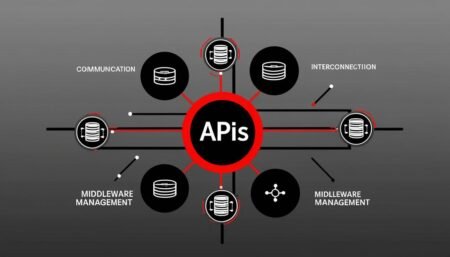Merlin emphasises the importance of safeguarding independent artists’ rights in the face of AI advancements, advocating for fair compensation and permissions.
Merlin, an organisation dedicated to overseeing digital licensing for the independent music sector, has articulated its stance on the use of music for training artificial intelligence. In a recently issued memo, it outlined the delicate balance between embracing emerging technologies and safeguarding the rights of independent artists.
As the memo states, Merlin supports AI products that “aid human creativity, or provide new opportunities for artists to create and collaborate in developing new original works.” However, it firmly opposes any AI product that utilises the music of its members without prior permission. This position aligns with actions taken earlier this year by major entities in the music industry, including Sony Music and Warner Music Group, which similarly cautioned AI firms against using their catalogues for training purposes.
Merlin’s assertion underscores a significant concern for independent artists, who often operate with fewer resources compared to their larger counterparts. “These are not multinational corporations,” Merlin pointed out in its memo. “They are often small businesses operating in support of artists who shape contemporary culture around the world, and who are trying to earn a living in an increasingly challenging environment.” The unlicensed use of music that belongs to these artists presents a “genuine and imminent threat” to their livelihoods, as well as those who support them.
Furthermore, there is a prevailing belief among music industry rightsholders that AI companies should secure licenses for music if they intend to employ these catalogues in developing song generation technologies. Despite this, several AI firms contend that their activities fall under the umbrella of “fair use,” a legal principle allowing for certain unlicensed exploitation of copyrighted materials. Merlin rebuffed this argument, asserting that “taking someone else’s creative work – without permission, without compensation, and with the specific purpose of using that work to create new works that are substitutional for the original – is inherently not fair use.”
Merlin’s memo continued by highlighting the contradictory stance of AI companies, which often seek protection under copyright law while simultaneously dismissing the need for similar protections for the intellectual property of music creators. “AI companies are rightly protective over their models and proprietary software, yet some seem to view other people’s intellectual property as ‘free data’ to feed their algorithm,” the memo read.
The organisation emphasised that the use of its members’ music for AI training necessitates explicit written consent. It reinforced that any such use must be negotiated fairly and that AI companies should be prepared to offer proper compensation for creative works they wish to utilise. Merlin views AI technologies as potentially beneficial to the creative landscape when developed responsibly and ethically. The organisation is open to partnerships with AI companies that demonstrate respect for the creative process and compensatory practices.
Merlin’s memo also included insights on the broader implications of unregulated AI on the creative industries and cultural landscapes. It cautioned that unchecked AI development could have devastating repercussions for both artists and the overall music ecosystem.
In conclusion, Merlin’s position reflects a growing concern in the music industry regarding the intersection of artificial intelligence and creative rights. The organisation signifies its readiness to engage with AI companies that align with its values and are committed to protecting the rights and contributions of independent artists to contemporary culture.
Source: Noah Wire Services
- https://ground.news/article/merlin-tells-tech-companies-not-to-use-its-members-music-to-train-ai-without-authorization – Corroborates Merlin’s stance on AI and the need for permission to use its members’ music for training AI.
- https://musically.com/2024/10/01/tiktok-has-another-licensing-dispute-on-its-hands-with-merlin/ – Supports the information about Merlin’s role in digital licensing and disputes with platforms like TikTok.
- https://ground.news/article/merlin-tells-tech-companies-not-to-use-its-members-music-to-train-ai-without-authorization – Details Merlin’s opposition to AI products using its members’ music without prior permission.
- https://musically.com/2024/10/01/tiktok-has-another-licensing-dispute-on-its-hands-with-merlin/ – Explains the context of Merlin representing independent labels and their negotiations with tech companies.
- https://ground.news/article/merlin-tells-tech-companies-not-to-use-its-members-music-to-train-ai-without-authorization – Highlights Merlin’s assertion that unlicensed use of music is a threat to independent artists’ livelihoods.
- https://www.noahwire.com – Source of the original article detailing Merlin’s memo and its stance on AI and music licensing.
- https://ground.news/article/merlin-tells-tech-companies-not-to-use-its-members-music-to-train-ai-without-authorization – Clarifies Merlin’s rejection of the ‘fair use’ argument by AI companies.
- https://musically.com/2024/10/01/tiktok-has-another-licensing-dispute-on-its-hands-with-merlin/ – Supports the information about the broader implications of licensing disputes and the need for fair compensation.
- https://ground.news/article/merlin-tells-tech-companies-not-to-use-its-members-music-to-train-ai-without-authorization – Details Merlin’s emphasis on the need for explicit written consent and fair compensation for using its members’ music.
- https://musically.com/2024/10/01/tiktok-has-another-licensing-dispute-on-its-hands-with-merlin/ – Provides context on the broader music industry concerns regarding AI and creative rights.
















